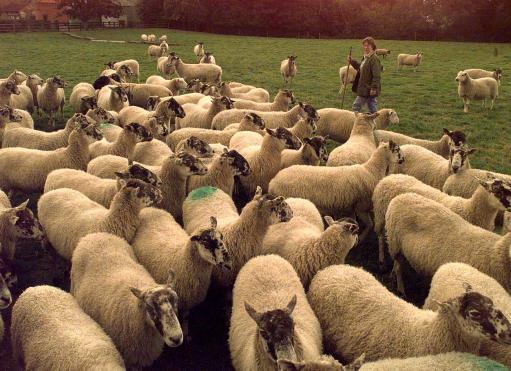Only a day after The Courier reported on a sheep worrying incident at Bridge of Cally, NFU Scotland has hit out at the Scottish legal system’s treatment of such incidents.
The reaction comes after a West Lothian farm was left with a £20,000 loss following a horrendous attack by dogs on its sheep flock.
The Scottish Crown Office and Procurator Fiscal Service (COPFS) should treat incidents of sheep worrying with greater seriousness and ensure that those whose livelihoods depend on these animals are properly recompensed for their losses says NFUS.
The devastating attack on the 100 ewes and lambs owned by the Hamilton family at Cairns Farm, Kirknewton, saw 70 sheep mauled to death or later put down on humane grounds by the farm’s vet.
The event, which happened 18 months ago, saw the owner of the dogs a bull mastiff and two border collies charged with the incident.
However, last week after the owner plead guilty to an amended charge at Livingston Justice of the Peace Court, he received only a £400 fine and, as a result of the amended charge, no compensation was awarded to the Hamiltons for their losses or the deep trauma that the incident caused.
The only recourse open to the family to secure compensation is to consider a civil claim.
This incident, and the disappointing manner in which it has been treated by the Scottish legal system, will be a worrying development for Scottish sheep farmers as they prepare for lambing, says NFUS.
As spring approaches, and more people get out and about walking in the countryside, it is urging dog walkers to be responsible and to abide by the Scottish Outdoor Access code to help avoid distressing incidents like these.
By keeping dogs on leashes, and away from fields, livestock worrying can be avoided.
Caroline Hamilton said: “We wouldn’t want any other farmer to go through what we have.
“The fine handed to this man was worthless compared to the trauma and loss we have suffered.
“When we went to check our flock, what we found was devastating.
“There were 85 ewes a third of our flock covered in blood.
“Some were dead and some with injuries to their neck and faces.
“It took over two days to gather the ewes and their lambs in from the hill, a job that normally takes three to four hours.
“Many were so traumatised they had to be lifted and brought in with the quad bike and trailer.”
She continued: “Ewes and lambs were hiding in ditches, and behind rushes, bleeding from the neck and face, some had been attacked the previous day or two and, because of the warm weather, wounds were already infested with maggots.
“For our flock, there were many ewes who had been too badly injured to ever breed again.
“That, as well as the continuous veterinary costs for the dressing of wounds and antibiotics, leaves us with a huge financial burden.”
